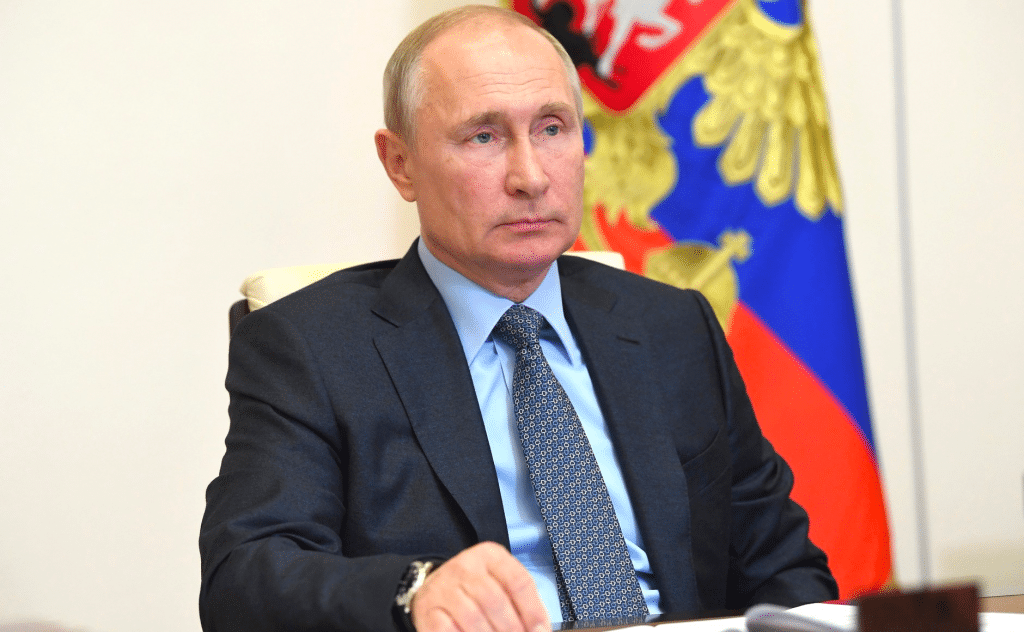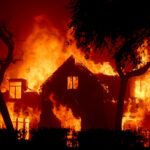Europe’s ‘darkest hour,’ war in a radioactive zone, and fleeing citizens: Putin invades Ukraine
By Matt Field | February 24, 2022
 Russia has invaded Ukraine. Pictured is President Vladimir Putin, who announced the invasion Wednesday. Credit: www.kremlin.ru.
Russia has invaded Ukraine. Pictured is President Vladimir Putin, who announced the invasion Wednesday. Credit: www.kremlin.ru.
The “darkest hour” for Europe in 80 years began last night as Russian President Vladimir Putin brushed off the threat of international sanctions on his country and attacked neighboring Ukraine by land, sea, and air. Putin’s announcement came as diplomats on the UN Security Council met in a last minute attempt to defuse tensions.
Russian forces entered Ukraine through the East, where separatist rebels have been fighting the central government for years, the South, near the Black Sea, and the North through Belarus, where Russians reportedly headed into Ukrainian resistance in the Chernobyl exclusion zone, the site of one of the world’s worst nuclear disasters in 1986. An official in the Ukrainian Interior Ministry feared that heavy fighting there could spread radioactive dust across Ukraine, Belarus, and the European Union.
Russian forces appeared to have captured the area around the former Chernobyl plant, according to the Associated Press, which reported that an official said Russian shelling had damaged a radioactive waste repository nearby.
Explosions could be heard in Kyiv and other major Ukrainian cities, as Ukraine reported Russian bombardments across the country. A Washington Post video showed hundreds of people including children, crammed into a subway station in Kharkiv, a city of 1.5 million near the Russian border, sheltering as explosions rang outside.
Hundreds of people, including many women and children are currently taking shelter inside a subway station in Kharkiv, #Ukraine as explosions are heard in the city. @washingtonpost pic.twitter.com/ZddeHqlMvU
— Salwan Georges (@salwangeorges) February 24, 2022
The Ukrainian Ministry of Defence reported Thursday that the country’s military had inflicted casualties “in men and materiel,” and had destroyed six planes, two helicopters, and dozens of armored vehicles. A Reuters report said Ukrainian authorities reported killing 50 Russian troops near the separatist enclave of Luhansk. Russian authorities denied the reports of troop deaths and equipment losses, according to Reuters.
Heavy casualties have been reported on the Ukrainian side, as well.
By Thursday morning, more than 40 Ukrainian troops died in fighting and dozens more were wounded, a Ukrainian official reported, according to The New York Times. In an attack on the port city of Odessa on the Black Sea, Russian amphibious commandos killed 18 Ukrainian military officials, according to the newspaper.
World leaders condemned the Russian invasion. US President Joe Biden said, “President Putin has chosen a premeditated war that will bring a catastrophic loss of life and human suffering,” according to a White House statement. Biden said the world “would hold Russia accountable.” Previously Biden promised that the United States would impose more sweeping sanctions on Russia if the country made deeper incursions into Ukraine, which, of course Russia already has. By Thursday Putin’s military advanced toward Kyiv, according to The Washington Post.
A major humanitarian crisis could unfold as Russian forces bombard and invade Ukrainian cities. In Kyiv, traffic was at a kilometers-long standstill on a main road out of the capital. “I’m going away because a war has started, Putin attacked us,” a woman told Reuters as she waited with her three-year-old daughter for traffic to clear. “We’re afraid of bombardments.”
Putin has said his goal is to demilitarize and “de-nazify” Ukraine, claiming that the country is rife with far-right extremist. Where he will stop in attempting to remake the former Soviet republic remains unclear.
Together, we make the world safer.
The Bulletin elevates expert voices above the noise. But as an independent nonprofit organization, our operations depend on the support of readers like you. Help us continue to deliver quality journalism that holds leaders accountable. Your support of our work at any level is important. In return, we promise our coverage will be understandable, influential, vigilant, solution-oriented, and fair-minded. Together we can make a difference.
Keywords: Ukraine, Ukraine conflict, Vladimir Putin
Topics: Analysis















